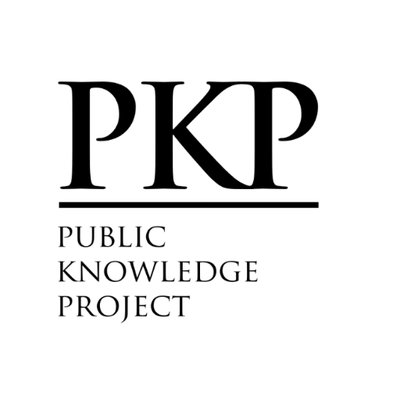The strategic decision-making process in family businesses in Cameroon
DOI:
https://doi.org/10.59051/joaf.v11i2.379Keywords:
Board of Directors, Family Business, Decision Making, CameroonAbstract
This research aims to highlight the factors having an influence on the role played by the Board of Directors in the strategic decision-making process of Family businesses in Cameroon. The data analyzed were collected from 46 family firms in the cities of Yaoundé, Douala, Bafoussam and Dschang. Using orderly logistic regression, our results indicate that the individual factors to the manager (age, level of training, professional experience) have a significant influence on the role played by the board of director in the Decision-Making Process. In fact, although the influence of the manager's age is negative, his level of training and professional experience positively influence the role played by the Board in the decision-making process. In addition, we found a significant and positive association between the decision-making process and the contextual factors (link of inbreeding, accumulation of function) in the company. These conclusions constitute the basis of a reflection on the profile of the ruling class of family businesses in Cameroon, making it possible to guarantee and ensure their performance and sustainability.
Downloads
References
Agor, W. H. (1986), « The logic of intuitive decision making : A Resarch based approch for top management » New York. Quorum book.
Allouche, J. and Amann, B. (2000), « The family business : a state of the art, Finance Contrôle Stratégie », vol3, n°1, pp.22-79.
Ang, J. Lauterbach, B. and Schreiber, B. Z. (2002), « Pay at the executive suite : How do US banks compensate their top management teams ? », Journal of Banking and Finance, vol26, pp.1143-1169.
Arrègle, J. L. Very, P. and Raytcheva, S. (2002), « Social capital and advantages of family businesses : proposal of an integrative model », Research paper, EDHEC, 28.
Astrachan, J. and Kolenko, T. A. (1994), « A neglected factor explaining family business success: Human resources practices », Family Business Review, vol7, n°3, pp.256-262.
Baldwin, J. et al. (1997), « Business bankruptcies in Canada », Ottawa, Statistics Canada.
Barnes, L. and Herschon, S. (1985), “Transforming Power in Family Business”, Harvard Business Review, vol54, pp.105-114.
Barry, (1975), “The development of organization structure”.
Berle, A. A. and Means, G. C. (1932), “The modern corporation and private property”, New - York MacMillan.
Charreaux, G. and Pitol-Belin, J. P. (1990), « The Board of Director », Vuibert Gestion.
Chibani Ltaief, F. & Henchiri, J.E. (2016). La structure financière des entreprises familiales : une analyse fondée sur la théorie du Pecking Order. Journal of Academic Finance, 7(2), 84-97.
Christensen, R. C. (1953), « Management succession in small andgrowing enterprises », Boston Division of Research, Harvard Business School, 9.
Chtourou, M. S. J. Bédard, and Courteau, L. (2001), « Corporate Governance and Earnings Management, working document », Université de Laval.
Churchill, N. C. and Hatten, K. J. (1987), « Non market-based transfers of wealth and power : A research framework for family businesses », American Journal of Small Business, vol11, n°3, pp.51-64.
Daily, C. M. and Dalton, D. R. (1993), “Bankrupcy and corporate governance: the impact of board composition and structure”, Academy of Management Journal, vol37, n°6, pp.1603-1617.
Daily, C. M. and Dollinger, M. J. (1992), “An empirical examination of ownership, structure in family versus non-family managed business”, Family Business Review, vol5, n°2, pp.117-136.
Daily, C. M. and Thompson, S. S. (1994), « Ownership Structure, strategic posture and firm growth: An empirical examination », Family Business Review, vol3, pp.347-249.
David, P. (1983), « Realizing the potential fo the family business », Organizational Dynamics, vol12, pp.47-56.
Dechow, P. R. Sloan, and Sweeney, A. (1996), « Causes and consequencesof Earnings manipulations : A analysis of firms subjet to enforcement actions by SEC », Contemporary Accounting Research, vol4, n°1, pp.1-23.
Djimnadjingar, R. (2017), « The governance of family SMEs in Tchad : Performance improved by family characteristics more than by altruism factors », Journal of Small Business and Entrepreneurship Research, vol5, n°1, pp.1-24.
Donnelley, R. G. (1964), « The Family Business », Harvard Business Review, vol42, pp.93-105.
Dupuis, J. P. (1994), “At the origin of the cognitive sciences”, The discovery Paris, 81.
Dyer, W. G. (1986), “Cultural changes in Family Firm: Anticipating and managing Business as family transitions”, Jossey-Bass Publischers.
Fama, E. F. and Jensen, M. C. (1983), “Separation of ownership and control”, Journal of Law and Economics, vol26, n°2, pp.301-344.
Feudjo, J. R. (2006), « Governance and performance of Cameroonian companies: a universe of paradoxes », CRECCI's electronic notebooks, n°33, pp.1-30.
Feudjo, J. R. (2009), « Governance, ownership structure and performance of family businesses : the case of Cameroon » , Revue Française de Gouvernance d'Entreprise, n°6, pp.147-169.
Finet, A. Bughin, C. and Colot, O. (2008), « Analysis of the theory of the rooting of managers according to the family nature of unlisted companies : The Case of Belgium », 2nd day Georges Doriot, HEC, Paris, 28.
Gabrielsson, J. and Winlund, H. (2000), “Boards of directors in small and medium-sized industrial firms: examining the effects of the board's working style on board task performance”, Entrepreneurship & Regional Development, vol12, n°4, pp.311-330.
Gallo, M. A. and Estapé, M. J. (1994), « The family business in the Spanish food and beverage industry », IESE Research Paper, (265), University of Navarra.
Gallo, M. A. and Kenyon-Rouvenez, D. (2004), « The importance of family governance and entrepreneurial governance », Collection Que sais-je, Editions PUF, Paris, pp.78-96.
Gersick, K. E. Davis, J. A. McCollom, H. M. M. and Landsberg, I. (1997), « Generation to generation: Life cycles of the family business », Boston, MA : Harvard Business School Press.
Glueck, W. F. and Meson, T. S. (1980), « A literature analysis of concepts », Paper presented at the Academy of Management Annual Meeting, Detroit, MI.
Godard, L. (1998), « The determinants of the choice between a board of directors and a supervisory board », Finance Contrôle Stratégie, vol4, n°1, pp.39-61.
Godard, L. and Schatt, A. (2000), “What are the optimal characteristics of the board of directors?”, Working paper FARGO n ° 1040201. University of Burgundy.
Gomez-Mejia, L. Nunez- Nickel, M. and Gutierrez, I. (2001), “The role of family ties in agency Contracts”, Academy of Management Journal, vol44, n°1, pp.81-95.
Hambrick, D. and Fukotomi, G. (1991), « The Seasons of a CEO's Tenure », Academy of Management Review, pp.719-742.
Hambrick, D. C. and Mason, P. A. (1984), “Upper echelons: The organizations as a reflection of its top managers”, Academy of Management Review, vol9, n°2, pp.193-207.
Handler, W. C. (1989), “Methodological issues and considerations in studying family businesses”, Family Business Review, vol2, n°5, pp.257-276.
Hermalin, B. E. and Weisbach, M. S. (1991), “The effects of board composition and direct incentives on firm performance”, Financial Management, vol20, n°4, pp.101-112.
Hugron, P. (1998), « The management of family businesses », Management, vol23, n°3, pp.37-40.
Janssen, F. (2002), « Determinants of SME growth : theoretical analysis and empirical study with a sample of Belgian companies », Doctoral thesis, Université Jean-Moulin Lyon. 330P
Jensen, M. C. (1993), « The modern industrial revolution, exit the failure of internal control systems », Journal of Finance, vol48, n°3, pp.831-880.
Jensen, M. C. and Meckling, W. H. (1976), “Theory of the firm: managerial behavior, agency costs and ownership structure”, Journal of Financial Economics, vol3, n°4, pp.305-360.
Johannisson, B. and Huse, M. (2000), “Recruiting outside board members in the small family business: an ideological challenge”, Entrepreneurship & Regional Development, vol12, n°4, pp.353-378.
Kakti, N. G. Kueda, W. B. Ngassa, M. Kountelejouo, L. C. and Kouakep, O. S. (2020), « The determinants of the level of involvement of the board of director in the decision-making process of family businesses: evidence from Cameroon », The International Journal of Business Management and Technology, vol4, n°1, pp.86-96.
Kepner, E. (1983), « The family and the firm : A coevolutionary perspective », Organizational Dynamics, vol12, n°1, pp.57-69.
Labaki, H. (2007), « Contribution to the knowledge of family ties in listed French family businesses : strengthening versus mitigation », Doctoral thesis, Montesquieu-Bordeaux VI University. 487p.
Lebouché, S. (2000), « Key success factors and risks linked to the creation of PE in the armaments sector », Angers Congress, French Accounting Association.
Longenecker, C. O. Simonetti, J. L. and Sharkey, T. W. (1999), “Why organizations fail: the view from the front-line”, Management Decision, vol37, n°6, pp.503-513.
Louizi, A. (2011), « The Determinants of Good Governance and the Performance of French Companies : Empirical Studies », Thesis for the Doctorate in Management Sciences, Jean Moulin University, Lyon 3, 226p.
Lussier, R. N. and Pfeifer, S. (2001), “A crossnational prediction model for business success”, Journal of Small Business Management, vol39, n°3, pp.228-239.
Marchesnay, M. (1986), « TPE as adaptation to the crisis », in CHICHA J. Joyal A & Julien PA, The SME in a changing world, Presses Universitaire du Québec.
McNulty, T. and Pettigrew A. (1999), « Strategists on the Board », Organization Studies, vol20, n°1, pp.47-74.
Melin, L. and Nordqvist, M. (2000), « Coporate Gouvernance in familly firms: The role of : influential Actors and the strategic Arena », communication at the ISCB conference, Brisbane.
Mizruchi, M. S. (1983), “Who controls whom? An examination of the relation between management and boards of directors in large American corporations”, Academy of Management Review, vol8, n°3, pp.426-435.
Mouline, J. P. (2000), « The French family SME and its strategic orientation : an exploratory study, research » notebook 2000-01, CREFIGE, Université Nancy 2.
Mustakallio, M. and Autio. (2002), “Relational and contractual governance in family firms Effects on strategics decisions making”, Family Business Review, vol15, pp.205-222.
O'Farrell, P. N. and Hitchens, D. W. N. (1988), “Alternative theories of small-firm growth: a critical review”, Environment and Planning, vol20, n°10, pp.1365-1382.
Olson, P. D. Zuiker, V. S. Danes, S. N. Stafford, K. Heck, R. K. and Duncan, K. A. (2003), « The impact of family and business on family business sustainability », Journal of Business Venturing, vol18, n°5, pp.639-666.
O'Neill, H. M. De Angels, and Ducker, J. (1986), “Survival and failure in small business”, Journal of Small Business Management, vol24, n°1, pp.125-135.
Papadaki, E. and Chami, (2002), « Determinants of the Growth of Micro-enterprises in Canada », Small Business Policy Branch, Industry Canada.
Paquerot, M. (1996), « The rooting of the leader and its effects », Revue française de gestion, n°111, pp.212-225.
Posa, F. and Messer, T. (2001), « Spousal Leadership and Continuity in the family firm », Family Business Review, vol14, n°1, pp.25-36.
Putnam, R. D. (1995), « Bowling alone: America's declining social capital », Journal of Democracy, vol6, pp.65-78.
Rouby, E. (2008), « The composition / roles of the board of directors: an analysis in terms of social capital », Finance, Contrôle Stratégie, vol11, n°2, pp.29-50.
Sharma, P. (2004), “An overview of the field of family business studies: Current status and directions for the future”, Family Business Review, vol17, pp.1- 36.
Shleifer, A. and Vishny, R. W. (1989), “Management entrenchment: The case of manager-specific Investments”, Journal of Financial Economics, n°25, pp.123-139.
Stempler, G. L. (1988), “A study of succession in family firms owned businesses”, Doctoral dissertation, Georges Washington University.
Taguiri, R. and Davis, J. A. (1982), “Santa Barbara, CA: Owner Managed Business Institute”.
Tchamkam, J. P. (2000), « The family business in Cameroon », Creff research paper (05).
Tomaselli, S. (1994), « Training the next generation of owners and managers : A possible key role for directors in family business », Research paper (281), IESE research division, University of Navarra.
Wanda, R. (2001), « Financial structure and business performance in a context without a financial market: the case of Cameroon », Revue du Financier, vol 16.
Ward, J. L. (1987), « Keeping the Family Business Healthy », San Francisco, Jossy-Bass.
Westhead, P. (1995), “Survival and employment growth contrasts between types of owner-managed high-technology firms”, Entrepreneurship Theory and Practice, pp.5-27.
Westhead, P. and Cowling, M. (1998), “Family firm research: The need for a methodological rethink”, Entrepreneurship Theory and Practice, vol23, n°1, pp.31-56.
Wortman, M. S. J. (1994), « Theoretical Foundations for Family-owned Business : A Conceptual and Research-based Paradigm », Family Business Review, vol7, n°1, pp.3-27.
Zarai, M. A. and Bettabai, W. (2007), « Impact of the effectiveness of audit committees on the quality of disclosed accounting profits », Revue governance, vol4, n°1, 23p.
Zenou, E. (2002), « What is the value of the manager's managerial practice ? » European Entrepreunarial Learning and EM Lyon (School of Management), n°3.
Downloads
Published
How to Cite
Issue
Section
License
Authors who publish with this journal agree to the following terms:
- Authors retain copyright and grant the journal right of first publication with the work simultaneously licensed under a Creative Commons Attribution License that allows others to share the work with an acknowledgement of the work's authorship and initial publication in this journal.
- Authors are able to enter into separate, additional contractual arrangements for the non-exclusive distribution of the journal's published version of the work (e.g., post it to an institutional repository or publish it in a book), with an acknowledgement of its initial publication in this journal.
- Authors are permitted and encouraged to post their work online (e.g., in institutional repositories or on their website) prior to and during the submission process, as it can lead to productive exchanges, as well as earlier and greater citation of published work (See The Effect of Open Access).






















